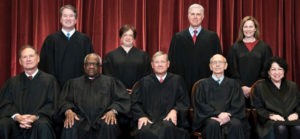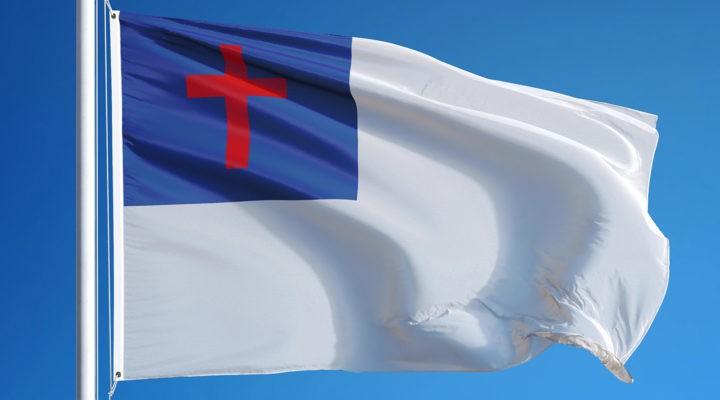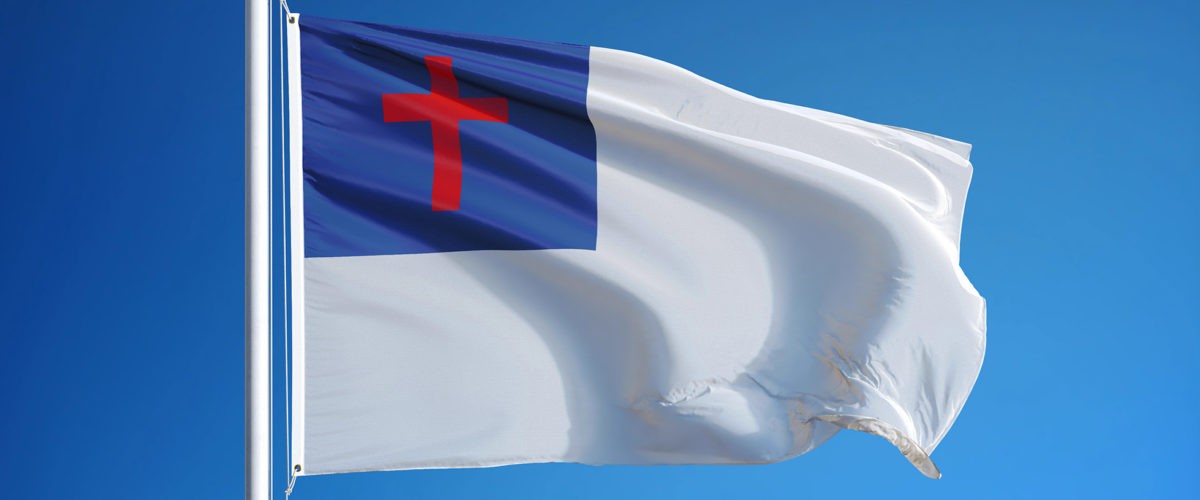The latest religious liberty case heard by the United States Supreme Court should have been settled before it got to Washington, justices said during oral arguments Jan. 18. Yet the court accepted the case and spent 90 minutes debating it — almost begrudgingly.
At issue in Harold Shurtleff v. City of Boston is a request by a Christian civic group, Camp Constitution, for the City of Boston to allow a Christian flag to fly on one of two City Hall flagpoles commonly used by civic groups and movements to celebrate their causes. The city offers groups the opportunity to fly their flags briefly on the poles to encourage civic engagement. The city denied Camp Constitution’s application because of the religious nature of its “speech.”
During the Tuesday morning hearing, justices expressed amazement that the city hadn’t settled the matter, and a majority appeared to question whether this was truly a First Amendment Establishment Clause case anyway.
Justices expressed amazement that the city hadn’t settled the matter, and a majority appeared to question whether this was truly a First Amendment Establishment Clause case anyway.
In short, if the nine justices had been hired as a consulting firm advising the city of Boston, it appears they would have counseled writing a better flagpole policy than what the city currently has.
Justice Elena Kagan, one of the court’s few remaining liberals, expressed doubt that raising the Christian flag would violate the Establishment Clause, which says government may not “establish” or support one religion over others.
“In the context of a system where flags go up, flags go down, different people have different kinds of flags, then it is a violation of the free speech part of the First Amendment and not an Establishment Clause violation — the end,” Kagan said.
Both the Biden administration and the American Civil Liberties Union already had weighed in on the side of Camp Constitution — a signal that this is not a standard-issue religious freedom case.
Likewise, the court’s liberals and conservatives appeared to be circling around some unusual common ground of their own.
Even though Camp Constitution espouses views that would be deemed outrageous by Democrats and most moderates — perpetuating Donald Trump’s Big Lie that the 2020 presidential election was stolen from him, for example — the City of Boston admits it excluded the group solely because of a perception that the Christian flag is religious speech and therefore should be prohibited.
Attorney Douglas Hallward-Driemeier, who represented the City of Boston, told justices the city seeks to put forth its own message that is “one of diversity, but not of religion.”
Attorney Douglas Hallward-Driemeier, who represented the City of Boston, told justices the city seeks to put forth its own message that is “one of diversity, but not of religion.”
Justice Samuel Alito noted that when Camp Constitution’s request to participate in the flag-raising program was denied, the city’s only criteria was that flags had to be secular. Alito asked: If the city opens a forum to everyone but bans religious speech, doesn’t that violate the Constitution?
Over a 12-year period, the city approved 284 requests to fly other groups’ flags on the third flagpole, attorney Matt Staver told the justices, meaning the city had not denied any requests until the word “Christian” in Camp Constitution’s application drew attention.
Alito suggested the city had “reverse-engineered” its policy for approving flags after rejecting Camp Constitution’s application.

The U.S. Supreme Court, 2021
Hallward-Driemeier replied that the city’s policy against allowing non-secular flags reflects a desire to “stay silent, neutral with respect to religion.” That means the city will neither support religion nor criticize it, he said.
At one point, the conversation turned to whether a reasonable citizen walking by City Hall would know that flags on one of the three poles there were not endorsed by the city.
Justice Sonia Sotomayor said it is a “fiction” that people would think a raised flag outside City Hall does not somehow relate to the city. “If you see a flag on the pole, you think it’s City Hall speaking,” she said.
Yet the city’s policy allows many other kinds of flags unrelated to the city’s own message to be flown on the third pole. That allowance of other non-governmental messages appeared to trouble the justices, who wanted either a more narrow or more open policy.
Both the city and some justices raised questions about what limits could reasonably be put on the open forum of the flagpole. If the city has to accept all speech, would it be required to raise a swastika, for example. Or would it be required to allow the flag of a terrorist group?
If the city has to accept all speech, would it be required to raise a swastika, for example.
The justices — like the Biden administration — appeared to believe a more narrowly crafted policy could be created by Boston that would protect against hate speech while not singling out religious speech.
Staver, who works with a conservative evangelical law firm, acknowledged if the city has an open policy for the flagpole, that would mean even neo-Nazis would have to be included.
The problem here, Staver said, is that the city could “open up a forum but limit it to certain kinds of subject matters or speakers,” but the City of Boston has chosen not to do that.
Justices indicated a fairly firm belief that the case before them is not, in fact, an Establishment Clause case. Justice Brett Kavanaugh said the city’s policy rested on “a mistaken view about the Establishment Clause.”
Creating a public space for use by all groups, both religious and secular, does not violate the Establishment Clause, he said. “It seems like we’ve had case after case after case that has tried to correct that misimpression of the Establishment Clause, and that seems to me what the root cause is here.”
Justice Kagan asked Hallward-Driemeier why Camp Constitution and the city hadn’t settled their dispute since, in her view, the problem originated with a city official’s mistaken belief that the Establishment Clause prohibits the city from flying the Christian flag.
Justice Neil Gorsuch also told Hallward-Driemeier that, if the city official had denied the request “because he (erroneously) thought the Establishment Clause required him to do so,” then “what’s left to decide?”
A ruling on the case is not expected until summer. The court could rule narrowly on the facts of the Boston case or could use the case to make broader declarations about either the Free Exercise or Establishment clauses of the First Amendment.
Related articles:
In Boston flag case, ACLU and Biden administration take the side of a conservative Christian group
BJC offers timely answers to questions about religious liberty


